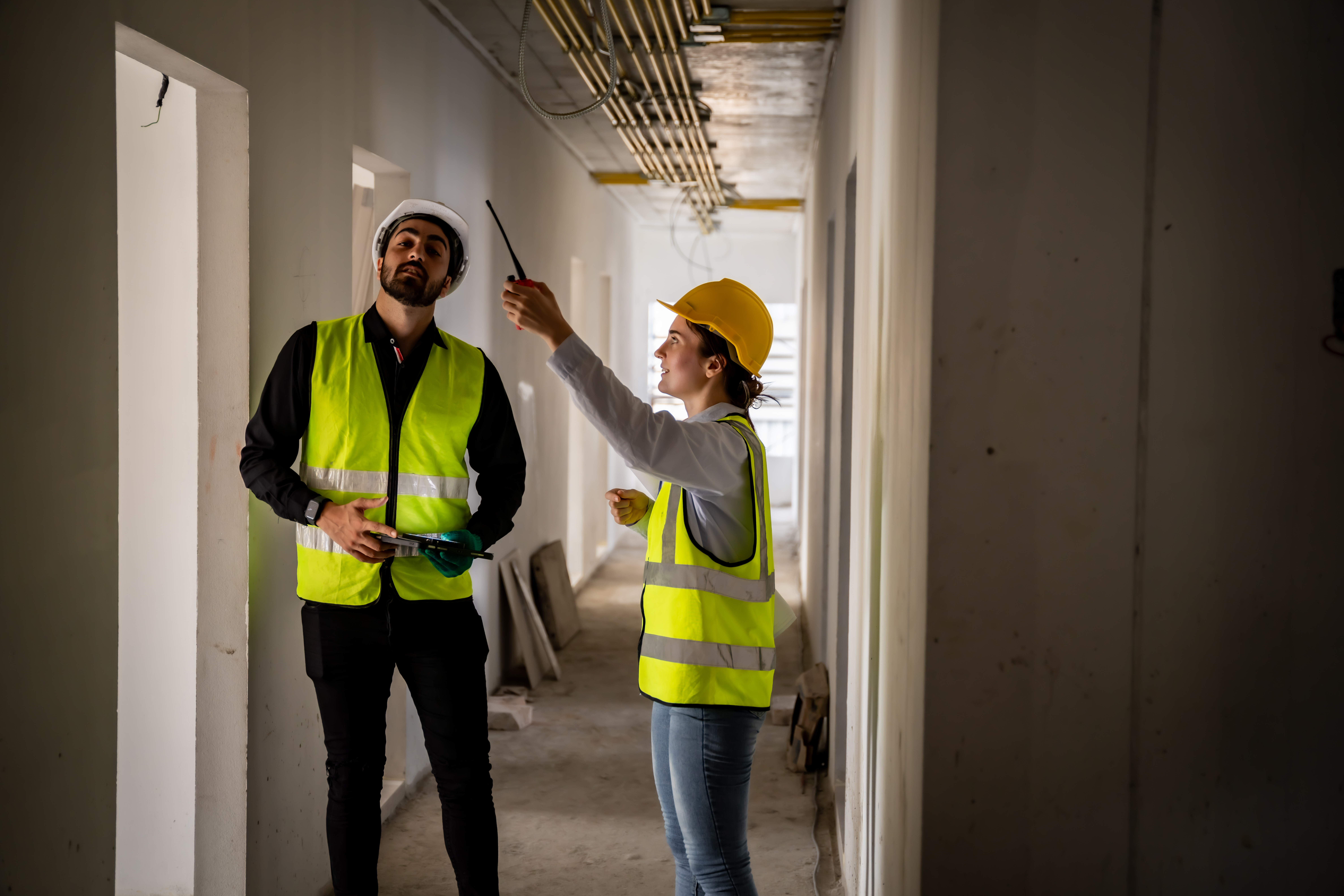Publications
-webp(85)-o(jpg).webp?token=48166662621f89b82a08def6ddda545c)
Finding My Home in the Homeland
Buying a home in Armenia had always been on my bingo card since repatriating. Becoming a real estate guru, however, wasn’t. But here we are! Through mistakes made and lessons learned, I finally purchased my first home.
If you’re thinking about doing the same, you’ve probably realized it’s not just about bricks and beams. The Armenian real estate market, while full of promise, has its quirks. So, here’s what I discovered along the way and would like to share with you.
Why Armenia and Why Now
Since 2019, I’ve seen Armenia’s property market evolve, sometimes for the better, sometimes not. Diaspora Armenians are returning, digital nomads are arriving, and new construction projects keep popping up. All of this adds energy and demand.
While Yerevan remains the hub, many buyers now look to Lori, Tavush, and Syunik for more space and affordability. I did the same by choosing Kotayk instead of central Yerevan.
The best part? You don’t need to be a citizen to buy property in Armenia. Repatriates and foreigners can purchase apartments, houses, and commercial properties. The only major limitation is agricultural land, which can only be owned through a registered Armenian company.
The Legal Landscape: What You Can and Can’t Do
Let’s start with the legal side. It caught me off guard at first, but it’s simpler than it looks.
You can:
- Buy residential or commercial property without a residency permit.
- Rent, sell, or pass on your property freely (unless you’ve purchased with a mortgage).
- Register ownership in the State Real Estate Cadastre to make it official.
You can’t (directly):
- Own agricultural land unless you set up a legal entity in Armenia.
- Buy in certain border or heritage zones without state approval.
- Expect easy mortgage approval; most banks require local income or residency.
In short, the process is straightforward once you know the boundaries.
What to Do: A Smart Buyer’s Checklist

My wife and I almost bought on impulse, which would’ve been a disaster. After that close call, we created a roadmap to keep us grounded. Here’s what worked for us.
- Define your purpose.
Ask yourself why you’re buying. Living, renting, or investing; your goal will shape every decision, from location to paperwork. - Do your homework.
Visit neighborhoods, talk to locals, and explore online. I compared Yerevan apartments with quieter towns like Dilijan and Gyumri before deciding. We even skipped one dream spot because the nearest pharmacy was 20 minutes away; details like that matter later. - Work with professionals.
Even if you use your bank’s legal services, it’s smart to consult a real estate lawyer. We also hired a structural engineer and surveyor to inspect the building. Armenia’s seismic activity makes that essential. - Verify ownership carefully.
This is crucial. Ask for the cadastral certificate and make sure it matches the seller’s ID. Check for unpaid taxes or inheritance issues. In Armenia, assumption is the enemy of ownership. - Get it in writing.
Handshake deals are common here, but only a notarized, registered contract protects your rights. If it’s not registered with the Cadastre, it’s not legally binding. - Understand your financing.
Banks do offer mortgages in Armenia to non-residents, but they come with higher down payments and stricter reviews. If you can afford to pay in full, do it. It’s faster and less stressful. - Budget beyond the price tag.
Buying the property is just the beginning. Add notary fees, registration, and renovation costs. Property taxes are low, but long-term upkeep like maintenance and utilities quickly adds up. - Keep every document.
This is one case where hoarding is encouraged. Keep both digital and physical copies of all contracts, receipts, and extracts.
What Not to Do: Avoiding Common Pitfalls

Some of these lessons came from our own missteps, others from close calls.
Don’t skip the inspection.
We rushed our first purchase and later discovered there was no running water; the owner had conveniently “forgotten” to mention that. We also had to redo all the floors. Ouch.
Don’t rely on one agent.
Always get multiple opinions. Some agents may have deals with sellers that compromise your interests. When possible, buy directly from the owner.
Don’t assume “registered” means “safe.”
Old ownership disputes can resurface here. We once found a house built illegally on someone else’s land. Talk about avoiding a potential nightmare…
Don’t buy with your heart alone.
That Ararat view loses its charm when the paperwork doesn’t hold up. Prioritize structure and legality over sentiment.
Don’t underestimate renovation costs.
Ask for references before hiring “varpets” or contractors. We didn’t, and ended up paying hidden fees. Always request a detailed price list, and keep an emergency cushion of 15-20%. Also, never (and we can’t stress this enough) pay in advance. An Australian expat paid about $60,000 upfront to a contractor who ate it all up and never got the job done.
If the people you hire are being pushy, work out some sort of deal. We agreed on paying in batches whenever a project was done before moving to the next.
Don’t use cash.
This one’s important. An owner once tried to pressure us with the classic “Leave a deposit in cash so I can reserve it for you” trick. Don’t fall for it. Stick with bank transfers; they’re safer and traceable.
Don’t forget to transfer utilities.
Make sure gas, water, and electricity accounts are under your name. Also, double-check that the systems actually work. Our “yes, there’s water” turned out to mean “sometimes.” Ouch, again. If there are no utilities at all, you have to be even more careful. Connecting them isn’t as easy as it seems.
There are tons of technical or bureaucratic issues involved that might prove to be costly. For example, when we wanted to connect the gas, we had to get the permission of our next-door neighbor. He was the de-facto owner of the gas main, as he was the first one, ever, to bring gas to the area. It’s all in the details.
Understanding Costs and Taxes
- Here’s what we wish we’d known before starting:
- Notary and registration fees: AMD 30,000-70,000 (≈ $75-$175).
- Property tax: Based on cadastral value, generally low.
- Capital gains and inheritance tax: Usually not applied to private individuals.
- Mortgage rates: Around 9-13% for residents, slightly higher for foreigners.
- Currency: Prices are listed in USD but paid in AMD through local banks.
- Overall, it’s a transparent process; just document everything and keep receipts.
Building Smart, Living Proud
Buying real estate in Armenia is more than an investment; it’s a personal milestone. At least it was for us. When we finally held the keys to our new home, it felt like closing the distance between where we were born and where we belong.
If you’re considering the same leap, take your time. Learn, verify, and lean on professionals. With patience and care, you won’t just own a house; you’ll build your next chapter right here in Armenia.
Welcome home.
-
News
-webp(85)-o(png).webp?token=428b7f0b0db8414293ad87e7c96061ca) 02.02.2026Is It Possible to Open a Bank Card in Armenia Remotely if You Are a Non-Resident?
02.02.2026Is It Possible to Open a Bank Card in Armenia Remotely if You Are a Non-Resident?

-webp(85)-o(png).webp?token=0f42b0b6495e56f8d4c718a8194ddb85)
-webp(85)-o(png).webp?token=413d245f6df5612dcb1aaf700e0e040b)